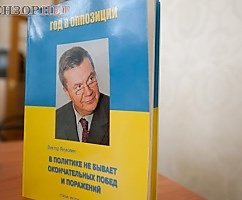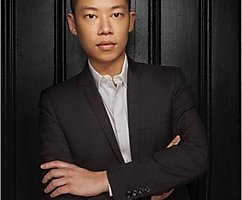Zen freedom
 Bashny.Net
Bashny.Net
Now, the more talk about freedom, the less it becomes, even though its time has come: without freedom nothing can not take place, neither the individual nor the life in the Universe. Nevertheless, freedom is not given to man. Not because it isn't there, not in itself, but from the outside, she is born from the inside? What is the reason for the elusiveness of freedom? The answer was given over 2,000 years ago: "ye shall know the truth, and the truth shall make you free" (Jn. 8, 32). But since people did not know the Truth, how much trying to prove herself, imagines himself to be the ultimate truth, "the measure of things". The very same "measure" is not the Truth, but only the way to it, if that's the measure, observing that the soul is in the balance and comes to "completeness," wrote St. Augustine. In his Confessions he argued: "I found that under my changing thought is unchangeable, true and eternal truth." What prevents to seek the eternal Truth? "Why is the truth excites hatred against yourself, and Your people, preach the truth, is the enemy of the people? Is it because they first choose a favorite item and then want their favorite subject was the truth... They hate the truth because of the subject that love is the truth... as a punishment he could not hide from the truth, and the truth is hidden from him."
Six million ninety thousand eight hundred nine
Man fell away from God, and the time after it had fallen from eternity, became unmanageable, turned into a disaster.
What follows from this overall idea of the Holy? First, what part has replaced the Whole, but "any part that is not consistent with the whole, ugly", the man "clings to one piece, to an imaginary unity." In the notes to the "Confessions," clarifies the thought of Augustine: God "brought all to a single order"; this order makes the world "one" — universitas. The integrity of the person "breaks", preferring her personal pride and personal sympathies, "one part", "imaginary unity"; he thus puts the "part" above "the whole"; a dignity belonging to the "General" universitati, he gives "part". Secondly — and this is not given to the consciousness of the unenlightened, partial person, because verifiable in experience, the Truth can not be, not be, recognize it or not, for it is set initially.
The truth is the Whole, then, man, fallen away from the Truth, fallen away from itself. Fallen away from themselves, rejected Being unnecessary. Freed from Being his own man imagines himself free from any moral obligations except the obligations of enrichment, not realizing that while life was left something very valuable, which makes him a man.
You can talk about psychology "part of" the vast majority (literally and figuratively) whose vision is distorted because of ignorance (Avidya Buddhist — darkened consciousness that a false, apparent accepts as true). But at the beginning of the XXI century is the ignorance, lack of understanding threatens the existence of people. It is possible to tell, all conflicts, war, irrational violence, religious strife, all absurd in life happens because of this distorted measure, or distorted consciousness, to put the part into place the Whole. It seems that not only broke "the link of times", but also the connection of spaces, the very Foundation dispersed in different directions, and opened up the abyss. "Abyssus abyssum invocat", — is said in the Psalms.
Man is indeed the measure of things, as and rewarded. Fractional splits person reality, reduces the world in the lower spheres in spite of the human mission to spiritualize things, connecting earth with heaven. Fallen away from God, man fell away from himself, and everything began to fall apart. Because talking about the need for new thinking, which alone can save the world from ultimate destruction. It has been more than half a century since I heard this call in the famous "Manifesto" of Russell-Einstein, but the risk of destruction is even greater. What is happening in our crazy world, confirmed the fears of scientists.
Consciousness has not changed, continues to dominate the psychology part. But some doomed to dependence — from the government, from yourself, from others, from time to time. The sense of diminishing time, apparently, comes from Greek ideas about the confined space — "the Path up and down are one and the same", says Heraclitus, the wisest of the Greeks. The Greek mind has set limits to human Being, unlike the Chinese Great Limit-Taiji — infinite. Time is compressed, condensed, as a fraction. Who would have thought that the calling awe "moment" turns on a man? But now is not the time, and the man fell away from God, and the time after it had fallen from eternity, became unmanageable, turned into a disaster. Any destructive element. At speed it loses its — "Dies the ability to think, giving the ability to see, hear, smell, touch," says Norwegian anthropologist Thomas Eriksen. If dropped from the mind, the soul, the person loses reference points. Every one-sided — feeling or mind — losing connection with the Whole, call it the Tao, the logos, the Spirit, is self-destructive. Time terrorizes the person, because the current person is not able to resist him. And the more chasing a man for a time, the less remains. Prematerials technology, says Eriksen, lead to the opposite results. Urgent matters do not allow the main. Perhaps that time rose per person, and dehumanized? Not a person manages time, and manages time person. This is the result of the struggle with with speculation.
Buddha-nature knows no divisions, not opposed to one another: not "this or that" and "this is it", one in the other.
Buddhists recognize the only kind of struggle with ignorance, ignorance of the laws of Existence. Other types of struggle for freedom of speech, individual rights, the Constitution is necessary in order to contain the violence and call a spade a spade, but they can't give freedom. Dark conquest consciousness turns humanity into a dark force. Evil has not diminished: our world shows it. So, something needs to change in the man below it, destroying others, is not destroyed at the same time like forever already.
It is not surprising that those who are able to understand what is happening, looking for the answer in the wisdom of the ancients, which, according to Plato, was smarter than us, because of the many saw One. Hence the interest in Eastern teachings to the Buddhist model of neprodovolstvennye, of non-duality (Advaita in Sanskrit, Japanese, Funi). Buddha-nature knows no divisions, not opposed to one another: not "this or that" and "this is it", one in the other. All is of the nature of "a double existence": at the same time continuously, point, and continuously, in waves. On this property of thinking drew the attention of Russian buddhologist Yu. N. Roerich. Both structure-beginning, "discontinuous", corpuscular and continuous, linear, present in the Mahayana Buddhism. "They are complementary of one and the same phenomenon. Consciousness is the immediate manifestation of the ocean of the unconscious, despite the fact that every moment is present all the time series — past, present, future". Every moment of Xana is the compressed compressed the universe and eternity. Time and space non-dualistic, are present in each other. If the samsara of time and space have a relative meaning, in Nirvana, for awakening consciousness, the space disappears, becomes Void Shunyi, and the time — lack of time, or eternity.
Confrontation — the fruit dizziness, which can be cleaned by following the right Path. In Buddhism, it is a gradual, "the eightfold" Path or the instant Zen, but the essence is the purification of consciousness. The struggle for decent conditions of life the Buddhists would call Upaya — a temporary means of support, which in itself can contribute to the freedom, but not to implement it. Freedom is not subject to force and not granted again. She "Dobychina" and comes when man is ripe for it. "The knowledge of the deity involves the passage through a catastrophe of consciousness through spiritual insight, changing the nature of the mind. Enlightened, illumined mind has a different mind, not the mind of this world and of this age. The deity is enlightened, illumined, spiritual and holistic mind." And if I hadn't read it in "the Philosophy of the free spirit" Berdyaev, it would have been considered for expressing the Zen master, despite the fact that Berdyaev did not know Zen. Is this confirmation really unchanging Truth, which is insightful to the minds of spiritual people at different times, in different space precisely because it is eternal? Some may call it a knowledge of the deity, the other — mind of the Buddha, but the essence is the same. For Buddhists it is Enlightenment or Prajna, the universal Wisdom. The flip side of universal Compassion, Mahakaruna. Knowledge is the path to Wisdom, but not Wisdom itself, which is merciful, because it is universal, not selective. It frees the mind from any addiction, including logic, when the previous leads to the following, forming a linear causal series for which it is not customary to go. We are so used to this procedure that do not realize that logic is an assumption of the mind. It can relieve the device of the created world and understanding people, but might as well destroy it (as did the Nazi leaders). However, lateral thinking does not change anything essentially, only storing what is already there. Qualitative change, transformation of the soul involves the vertical relationship with God, with the Holy Spirit with the Tao.
Zen is the awareness of the universal Enlightenment-Satori. C. G. Jung, penetrated into the mysteries of Eastern thinking, and gives a description of Satori, the Japanese Professor, a devotee of the Soto school: "Freeing ourselves from the false understanding of the Chia," we need to awaken our inner wisdom, pure and Holy, called Zen master Mind of the Buddha, or Bodhi, or Prajna. This sacred light, the inner heaven, the key to all moral treasures, the source of all influence and power, the abode of kindness, justice, sympathy, impartial love, humanity and mercy, the measure of all things. When this inner wisdom is awakened, we are able to realize that each of us is identical in spirit, in essence, in nature with universal life or Buddha, that life is not an ocean of suffering... but the sacred Buddha temple, Pure Land, everyone can enjoy the bliss of Nirvana." So the follower of Zen describes the essence of Enlightenment. From the point of view of Jung's divergence from any Christian book of piety here are the most insignificant.
According to Zen, the world can be likened to a circle, the center of which is everywhere, because it has no circumference. Because Zen is always direct experience, he refuses to submit to any system of philosophy.
Manifests itself in an isolated Single, or many at a lower level suggests the unity at the highest. But it's all the same world — samsara is Nirvana: "One in all and All in One." When this is understood fully, there is a place for creative genius, says D. T. Suzuki (1870-1966), who made Zen heritage of the West. According to Zen, the world "can be likened to a circle, the center of which is everywhere, since he has no circumference". Because "Zen is always direct experience, he refuses to submit to any system of philosophy".
How organic perception of the world is the consciousness of the Japanese, according to all traditional forms of art. As an organic commitment to the Truth-Makoto, which since ancient times the Japanese have identified with secret Beauty-Bi, the essence of the world. If non-linearity or singularity of all saves my soul-Ko-Koro, and that makes every thing independent, unique, attaching it to the one heart of the Universe, Issin. Independence not only from each other, from constructs of the mind, but also from time and space. That originated in ancient times, lives in Japan to this day: poetry Tanka, haiku, theatres But also Kabuki, painting ink on rice paper Sumi-e. And no wonder that the traditional art of the Japanese are perceived by other peoples as born, from one source.
The law of non-duality, neprodovolstvennye could not affect the religious feeling. You can remember Japanese Christian Uchimura, Kanzo (1861-1930), which puts the Truth-Sinri (K hieroglyph sin\Makoto added hieroglyph ri; Chinese Lee — the law of one, manifested in the unit). "Ever there is a need for the Truth. In our day neither science nor philosophy does not reflect the Truth. The truth is something that dwells at the depth, the essence of things, the life and light of man. People, honest, sincere can see it right, no University or book knowledge. It is hard to imagine how can any long survive the society neglecting the Truth"; "Truth, like Life, is difficult to grasp, and because our mechanical age and questioned the Truth in Life, because of their uncertainty. True knowledge of Life comes through the living. The scalpel and the microscope provide only its mechanism. We can know the Truth, having gone through it. Logic, pedantry only alienate her. The truth is There, it is bright and majestic, we can only go to Her, To myself, and not to call her to himself."
And at the end of his life he says the same thing: "I'm looking for a universal Truth everywhere in his house, thinking, in his soul — not at conferences, where men and women are going to gain wisdom. I'm looking for the Truth, which would be suited for all people, high and low, rich and poor, wise and unwise. Looking for Cswe that illuminates every person“ regardless of race, nationality, religion. This Truth is so deep that reaches the center of Being. The value of human life lies only in her. This intimate Truth of the universe itself discovers, and each person, finding it in yourself, it becomes universal, rising above yourself and the world."
But this is Zen! It is not surprising if we bear in mind that the idea of the Japanese turned to the past, where everything is already in pavlenda, time only makes its own adjustments. A sense of the Unchangeable in the changeable (fueki Ryuko) contributed to their way of thinking and Way of art. "Without a continued no Foundation, no changeable, no updates," confirms a favorite not only in Japan poet Matsuo Basho (1644-1694). Invisible true-things always present is that created by the Japanese. The Zen poet Ikkyu XV century expressed it in one breath:
How wonderful is divine
Spirit of man!
Fills the whole world,
Included in every blade of grass.
This means to see things as they are, in their Tathata, Suchness, in their original nature, which everyone has and at all One. The reality of the invisible present, available to the enlightened mind, which has overcome the attachment to his secondary, to Maya, to the illusion that man is constantly spinning out of his thoughts and desires. So you need to get rid of the ego, which turns everything in his own way, turns into a fiction. And the unawakened will spin in circles until you see that the cause of all the ills with which it is a senseless struggle in himself, in his non-freedom. This teaches Zen to grasp the phenomenon in its essence, as is (Kono-Mama). The Zen master paint Sumi-e ink on rice paper instantly, without thinking about the plan. Ultimate trust in the spirit, full of sincerity, spontaneity allow them one or two strokes to convey the soul of the subject. This is the gift of freedom: truly free do not impose itself on another.
This teaches Zen to grasp the phenomenon in its essence as it is. The Zen master to paint the picture instantly, without thinking about the plan. Ultimate trust in the spirit, full of sincerity, spontaneity allow them one or two strokes to convey the soul of the subject. This is the gift of freedom: truly free do not impose itself on another.
Suzuki calls the sense of Suchness intuition-Prajna, or rather, the feeling in its deepest sense. The feeling in its entirety, which the Japanese in ancient times called Eze. It pervades their poetry, allowing you to experience the ultimate as infinite and compassionate towards others. In the words of the disciple bass Keri of the poet and poetic reception Shiori (flexibility) creates pity. "The poet does not say so explicitly. Not to say that haiku is a feeling of pity, but touches the soul. It's hard to convey in words. Shiori buried but care. Shiori is Eze, what makes compassion different."
To stay in the Tathata means to just live and let live, to be equal, to be the Median between Heaven and Earth. And because tathata is called the "bottomless Void" where everything belongs to itself, and therefore one with all. Ordinary people Tathāta is unavailable due to "paracanoe" their mind. Although it would seem that it is easier than to be yourself? But before becoming yourself, forget yourself, says master Dogen (1200-1253), the founder of the Zen Soto school in Japan: "to Learn the Buddha means to learn themselves. To know yourself means to forget yourself. To forget oneself means to become one with all Dharma. Become one with all Dharmas means to get out of your mind and your body, which is United with the mind and body of others."
For us it is absolutely impossible train of thought: to reject something that people of the West are accustomed to value above all else — your body, your thoughts, your "I". But that's because we see something, our small "I" overshadows the true, inner person. The unawakened subconscious fears and does not see it as good news. "True hi" existed before he split Heaven and Earth before you were born father and mother," says the Zen master Takuan SOHO (1573-1645). And this "I" exists in me, in all birds and beasts, grass and trees, everything. This is called Buddha-nature.
"To learn the Buddha means to know yourself", that is, every man is Buddha, only not everyone knows it. Enlightenment, Hongaku inherent to everyone. "Our heart-mind is Buddha" ("Sokushin Zabuza") — called the fifth scroll ", Shobogenzo" of Dogen. Our original "Me" as it was before birth, is open to all entities, and only need to return to a true resident. To do this, forget yourself, abandon the worthless ego, preoccupied only with themselves, to see their inner person, which is not like the other and one with all. So called ego-consciousness avidyā — darkened mind through which does not penetrate the divine Light. The enlightened person begins to see things as they are, freed from the shadows of the illusory, vain world, blocking the path of Light.
Freedom is born of the spirit, which knows no boundaries. In the words of Suzuki, "Zen is the spirit of man. Zen relies on the inherent spirit of inner purity and righteousness. All human intervention in the work of the spirit infringe on its integrity and spontaneity". Because in Zen (from the word of Dhyana — "deep concentration") does not rely on words, written symbols (fury monji). The truth is conceived only in direct experience, in a state of Muga (no-self), mushin (no-thoughts). Then the person becomes himself, finds his "I".
Can be, really should not so much "know yourself" (and it is impossible — the true "I" is inexhaustible), but "forget yourself", to break the chain of cause and effect, enveloped the person to break through the veil of illusory existence is Maya, does not transmit the original Light? Say, Zen — jump in the true nature of man as he was before his birth, in a free state, not burdened by fear to lose something. To let your mind loose, to trust him, because the true mind is limitless and bright; to keep the mind in unison with Emptiness, or such-ness, where everything is in its true form. Indeed, holistic or free man, all the outer faces disappear, there is only the uniqueness of the inner soul. I've had to write: "East and West is in every man". The mismatch between West and East, two types of thinking, caused by a higher necessity, a law of the Tao. In the East it is called vzaimozavisimost Yin-Yang, or the Middle Path, suggesting how the diversity and the underlying unity of the parties in the name of holistic existence. This Path should be Awakened, Tao, the person, in our tradition — the God-man.
Zen requires individuals to limit strong-willed efforts. To experience instant enlightenment means to step into the abyss, without hesitation, without support.
Zen requires individuals to limit strong-willed efforts. To experience instant enlightenment means to step into the abyss, without hesitation, without support. Zen — jump in the level of consciousness or the superconscious, where disappear the previous installation. Zen comes from faith in the perfect nature of man. According to the third Chan Patriarch in China sun Jiang sen (VI), "the Perfect Way similar to the abyss where there is no lack and no excess. Just because we choose, we lose the Way. Don't get attached to anything external, and do not live in the inner void. When the world rests in oneness, duality disappears by itself" ("the Trusting mind"). Actually, in this one all mystics, no matter where or when they live. In the words of Meister Eckhart, "True detachment does not depend on anything; it does not ascend and do not diminish yourself in front of other creations. She is not aware neither of superiority nor of their shortcomings... Detachment does not wish to be anything. It leaves things what they are is".
Zen rejects all obstacles to get closer to the original Reality. Therefore I call Zen pre-primary, unconditional Freedom. In whom it is awakened, he can not harm someone or something, feeling his involvement in the Whole. It is pure practice, pure experience, a direct, immediate experience of the fact of life. Consciousness is ready to go back to the source because the source is clear. When in the blink of an eye passed way back, freed the mind, raskupayutsya channels connecting the human heart with the heart of the Universe.
So, fuller free. Free does not infringe on the freedom of another, there is no need. Moreover, to save himself, saves all things, for consubstantial with the world. It comes naturally from the completeness of the soul. Zen is not intended even in the name of salvation, knowing that in order to lose her. Satori comes instantly, samostatne, when the purified mind, tired soul, spirit, is focused on Higher. Comes to the absolute point where the moment meets eternity and reveals the "flower of mind". But it depends on the person, no one will help, as will not help the flower to bloom. Say, Satori is the most intimate and personal experience that transforms the human, saving him from attachment to yourself. Egocentric may not be free, being in bondage to himself. Suzuki calls the ego the enemy of man, generating a "confrontation", the eternal rivalry.
However, it's very simple and humane. About the experience of Satori shows nearly every haiku to Basho.
Barely I came,
Exhausted, to bed…
And suddenly, Wisteria flowers!
But it is the simplicity of compassionate wisdom, co-creation — not from himself and not in his own name, and at the command of God. "Whether people capture the brush stroke, or to exhaust words heaven the art Creation! — exclaims the bass. Tank Saigyo, the Renga of Sogi, the tea master, Rikyu — their Path is one riddled. This eternally Beautiful (Fugue). Who follows the spirit of Creation (Sasc), becomes a friend of the four seasons. That neither looks around sees a Flower. As neither thinks about the moon. One sees around the Flower, the savage. Who is not in the heart of the Flower, one like the beast. Cast himself from the savage, free from the beast, follow the spirit of Creation and return to Him." Suzuki explains: "the bass did not live there, where we, he passed through the superficial layers of consciousness to its deepest depths, in the Unconscious, that deeper unconscious, as I understand it usually psychologists... Is the intuitive comprehension of Reality is impossible if the world of Emptiness (Shunyata) seems to be beyond our everyday experience. Two worlds — the sensory and extrasensory are inseparable, are one and the same".
Word the bass is about the spirit of Creation can be compared to a "spark of God" Eckhart, which is in every, but not every flare up. "Flower soul" is what the man of God ("the Image of man, but the image of God" — according to Berdyaev, this is hidden all the mysteries of man). And no matter what it is variously called, it is important that people are by nature Theurg (the idea that inspired artists of the Russian Silver age). Simple and unpretentious in all kinds of Zen art: the preparation of compositions of flowers (ikebana) or tea ceremonies. But not accidentally call them By, To: KADO — the Way of flower or Tago —the Way of tea. Tea master say: do not need to follow any rules, just boil water and drink tea. What are the rules, if Zen is Tao, Tao is Truth, and Truth Is Freedom! Perhaps because wordless communication from heart to heart, meeting of the senses, if one heart open to another. "When I drink tea in the tea room — recognized Suzuki, I drink with him all the Universe. In that moment, when move the Cup to the lips, eternity enters time and space". However, the famous tea master sen no Rikyu (1521-1591), to simplify to the limit the tea ritual, found it possible to call the four rules of the way of tea: WA-kei-SEI-Jaku. VA — this is the atmosphere of Harmony, understanding without words, when one's heart responds to the call of the other. Kei — Respect: none of the participants could not put himself above other, tea house not only the abode of simplicity and naturalness, but also of Justice. SEI — purity in the absolute sense: the purity of the monastery and of the senses, purity of soul, no evil thoughts. Therefore, "leave the sword on the threshold" — outside the home of peace. And Zaku — complete peace, equanimity (the state compared with Nirvana — the peace and bliss that he had "forgotten himself").
What are the rules, if Zen is Tao, Tao is Truth, and Truth Is Freedom! Perhaps because wordless communication from heart to heart, meeting of the senses, if one heart open to another.
Kawabata Yasunari reminded about these rules in his Nobel speech in 1969, and added: "If wabi-Sabi (the spirit of simplicity, an enlightened solitude. — T. G.), which is so highly appreciated in the Way of tea, which prescribes Charmonia, reverence, purity and tranquility", represents the wealth of the soul, that tiny, simple tea room embodies the vastness of space, the infinity of Beauty." Suzuki expands the meaning of these concepts, calling VA-Harmony "softness of spirit" (average second kanji WA), as did its Japanese sage Shotoku Taishi. "Most importantly, gentleness of spirit, do not contradict other" — with these words Shotoku began its "Constitution" (604). And master Dogen returned from China, the question of what he learned there, he replied: "Kindness". "Reverence" is inherited from Confucius (Chinese Lee, one of the "five Postoyanstvo", the original properties of human nature: Humanity, sense of Justice, Reverence, Wisdom, Sincerity; one cannot exist without the other).
Suzuki explains: when art reaches perfection when it becomes artless, revealing the innermost Sincerity of Being. Then becomes available meaning "piety" in the art of tea. But this feeling can decrease, if adversely time. "In fact, Postfeminist" is a religious feeling... This feeling is then transferred to social relations, and then degenerates into a simple formalism. In the current era of so-called democracy all people are equal... and there is no one who would deserve a special reverence". How deep thought Suzuki: formal equality is the unification, unification of degeneration (homogeneous Union, said the Greek sage Empedocles, leads to hatred, hatred-neikos). Everything that encroaches on the individual nature ungodly, hostile to the world (hence, incidentally, the rejection of globalization, threatening national soul and freedom of the person). "In Zen, each individual is absolute integrity; as such, it is associated with all other individuals: this infinite chain of relations is possible in the realm of Emptiness, 'says Suzuki, is because they all find here exactly what they are, that is, individual entities". Zen makes the "weak blade of grass to act as the body of the Buddha... and, on the contrary, the Buddha's body to act like a weak blade of grass". He kind of holds the whole world in his hands. It is a religion of Zen.
I do not cause aspiration to the Zen art in the world — to treastises-haiku, the tea ritual, Zen gardens, soothing the soul, that the soul of this tired to fight the fabrications of the mind, fallen away from Truth, from Love?
Tatiana Grigorieva,
doctor of philological Sciences, Professor,
chief researcher
The Institute of Oriental studies
Literature
Blah. Augustine. Of a happy life.
The confessions of St. Augustine, Bishop of Hippo. M., 1991.
Berdyaev N.. The philosophy of the free spirit. M., 1994.
Eriksen T. H. Tyranny of the moment. Time in the information age. M., 2003.
Roerich Y. N. Buddhism // encyclopedia of philosophy: vol.1. M., 1960.
Suzuki D. T. Zen and Japanese culture.
Suzuki, D. T. Mysticism: Christian and Buddhist. K., 1996.
Jung, C. G. Foreword to the book "Zen Buddhism". Bishkek, 1993.
Kanjo Of Uchimura. Coll. Op. 40 t: T. 5, 3. Tokyo, 1982.
Breslavets T. N. Poetry Of Matsuo Basho. M., 1981.
The Dogen. Shobogenzo (Eye-Treasury of the true Dharma). 1st scroll "Ganze koan" // Vol. The Dogen, jansi, Tokyo, 1969.
TakuanSoho. The Unfettered Mind. Tokyo — New York — London, 1987.
Zen Buddhism and psychoanalysis. M., 1995.
Matsuo Basho. Works // Full. Coll. Op. Japanese classical literature: vol. 41.
источник:newacropolis.ru
Source: /users/1077
Six million ninety thousand eight hundred nine
Man fell away from God, and the time after it had fallen from eternity, became unmanageable, turned into a disaster.
What follows from this overall idea of the Holy? First, what part has replaced the Whole, but "any part that is not consistent with the whole, ugly", the man "clings to one piece, to an imaginary unity." In the notes to the "Confessions," clarifies the thought of Augustine: God "brought all to a single order"; this order makes the world "one" — universitas. The integrity of the person "breaks", preferring her personal pride and personal sympathies, "one part", "imaginary unity"; he thus puts the "part" above "the whole"; a dignity belonging to the "General" universitati, he gives "part". Secondly — and this is not given to the consciousness of the unenlightened, partial person, because verifiable in experience, the Truth can not be, not be, recognize it or not, for it is set initially.
The truth is the Whole, then, man, fallen away from the Truth, fallen away from itself. Fallen away from themselves, rejected Being unnecessary. Freed from Being his own man imagines himself free from any moral obligations except the obligations of enrichment, not realizing that while life was left something very valuable, which makes him a man.
You can talk about psychology "part of" the vast majority (literally and figuratively) whose vision is distorted because of ignorance (Avidya Buddhist — darkened consciousness that a false, apparent accepts as true). But at the beginning of the XXI century is the ignorance, lack of understanding threatens the existence of people. It is possible to tell, all conflicts, war, irrational violence, religious strife, all absurd in life happens because of this distorted measure, or distorted consciousness, to put the part into place the Whole. It seems that not only broke "the link of times", but also the connection of spaces, the very Foundation dispersed in different directions, and opened up the abyss. "Abyssus abyssum invocat", — is said in the Psalms.
Man is indeed the measure of things, as and rewarded. Fractional splits person reality, reduces the world in the lower spheres in spite of the human mission to spiritualize things, connecting earth with heaven. Fallen away from God, man fell away from himself, and everything began to fall apart. Because talking about the need for new thinking, which alone can save the world from ultimate destruction. It has been more than half a century since I heard this call in the famous "Manifesto" of Russell-Einstein, but the risk of destruction is even greater. What is happening in our crazy world, confirmed the fears of scientists.
Consciousness has not changed, continues to dominate the psychology part. But some doomed to dependence — from the government, from yourself, from others, from time to time. The sense of diminishing time, apparently, comes from Greek ideas about the confined space — "the Path up and down are one and the same", says Heraclitus, the wisest of the Greeks. The Greek mind has set limits to human Being, unlike the Chinese Great Limit-Taiji — infinite. Time is compressed, condensed, as a fraction. Who would have thought that the calling awe "moment" turns on a man? But now is not the time, and the man fell away from God, and the time after it had fallen from eternity, became unmanageable, turned into a disaster. Any destructive element. At speed it loses its — "Dies the ability to think, giving the ability to see, hear, smell, touch," says Norwegian anthropologist Thomas Eriksen. If dropped from the mind, the soul, the person loses reference points. Every one-sided — feeling or mind — losing connection with the Whole, call it the Tao, the logos, the Spirit, is self-destructive. Time terrorizes the person, because the current person is not able to resist him. And the more chasing a man for a time, the less remains. Prematerials technology, says Eriksen, lead to the opposite results. Urgent matters do not allow the main. Perhaps that time rose per person, and dehumanized? Not a person manages time, and manages time person. This is the result of the struggle with with speculation.
Buddha-nature knows no divisions, not opposed to one another: not "this or that" and "this is it", one in the other.
Buddhists recognize the only kind of struggle with ignorance, ignorance of the laws of Existence. Other types of struggle for freedom of speech, individual rights, the Constitution is necessary in order to contain the violence and call a spade a spade, but they can't give freedom. Dark conquest consciousness turns humanity into a dark force. Evil has not diminished: our world shows it. So, something needs to change in the man below it, destroying others, is not destroyed at the same time like forever already.
It is not surprising that those who are able to understand what is happening, looking for the answer in the wisdom of the ancients, which, according to Plato, was smarter than us, because of the many saw One. Hence the interest in Eastern teachings to the Buddhist model of neprodovolstvennye, of non-duality (Advaita in Sanskrit, Japanese, Funi). Buddha-nature knows no divisions, not opposed to one another: not "this or that" and "this is it", one in the other. All is of the nature of "a double existence": at the same time continuously, point, and continuously, in waves. On this property of thinking drew the attention of Russian buddhologist Yu. N. Roerich. Both structure-beginning, "discontinuous", corpuscular and continuous, linear, present in the Mahayana Buddhism. "They are complementary of one and the same phenomenon. Consciousness is the immediate manifestation of the ocean of the unconscious, despite the fact that every moment is present all the time series — past, present, future". Every moment of Xana is the compressed compressed the universe and eternity. Time and space non-dualistic, are present in each other. If the samsara of time and space have a relative meaning, in Nirvana, for awakening consciousness, the space disappears, becomes Void Shunyi, and the time — lack of time, or eternity.
Confrontation — the fruit dizziness, which can be cleaned by following the right Path. In Buddhism, it is a gradual, "the eightfold" Path or the instant Zen, but the essence is the purification of consciousness. The struggle for decent conditions of life the Buddhists would call Upaya — a temporary means of support, which in itself can contribute to the freedom, but not to implement it. Freedom is not subject to force and not granted again. She "Dobychina" and comes when man is ripe for it. "The knowledge of the deity involves the passage through a catastrophe of consciousness through spiritual insight, changing the nature of the mind. Enlightened, illumined mind has a different mind, not the mind of this world and of this age. The deity is enlightened, illumined, spiritual and holistic mind." And if I hadn't read it in "the Philosophy of the free spirit" Berdyaev, it would have been considered for expressing the Zen master, despite the fact that Berdyaev did not know Zen. Is this confirmation really unchanging Truth, which is insightful to the minds of spiritual people at different times, in different space precisely because it is eternal? Some may call it a knowledge of the deity, the other — mind of the Buddha, but the essence is the same. For Buddhists it is Enlightenment or Prajna, the universal Wisdom. The flip side of universal Compassion, Mahakaruna. Knowledge is the path to Wisdom, but not Wisdom itself, which is merciful, because it is universal, not selective. It frees the mind from any addiction, including logic, when the previous leads to the following, forming a linear causal series for which it is not customary to go. We are so used to this procedure that do not realize that logic is an assumption of the mind. It can relieve the device of the created world and understanding people, but might as well destroy it (as did the Nazi leaders). However, lateral thinking does not change anything essentially, only storing what is already there. Qualitative change, transformation of the soul involves the vertical relationship with God, with the Holy Spirit with the Tao.
Zen is the awareness of the universal Enlightenment-Satori. C. G. Jung, penetrated into the mysteries of Eastern thinking, and gives a description of Satori, the Japanese Professor, a devotee of the Soto school: "Freeing ourselves from the false understanding of the Chia," we need to awaken our inner wisdom, pure and Holy, called Zen master Mind of the Buddha, or Bodhi, or Prajna. This sacred light, the inner heaven, the key to all moral treasures, the source of all influence and power, the abode of kindness, justice, sympathy, impartial love, humanity and mercy, the measure of all things. When this inner wisdom is awakened, we are able to realize that each of us is identical in spirit, in essence, in nature with universal life or Buddha, that life is not an ocean of suffering... but the sacred Buddha temple, Pure Land, everyone can enjoy the bliss of Nirvana." So the follower of Zen describes the essence of Enlightenment. From the point of view of Jung's divergence from any Christian book of piety here are the most insignificant.
According to Zen, the world can be likened to a circle, the center of which is everywhere, because it has no circumference. Because Zen is always direct experience, he refuses to submit to any system of philosophy.
Manifests itself in an isolated Single, or many at a lower level suggests the unity at the highest. But it's all the same world — samsara is Nirvana: "One in all and All in One." When this is understood fully, there is a place for creative genius, says D. T. Suzuki (1870-1966), who made Zen heritage of the West. According to Zen, the world "can be likened to a circle, the center of which is everywhere, since he has no circumference". Because "Zen is always direct experience, he refuses to submit to any system of philosophy".
How organic perception of the world is the consciousness of the Japanese, according to all traditional forms of art. As an organic commitment to the Truth-Makoto, which since ancient times the Japanese have identified with secret Beauty-Bi, the essence of the world. If non-linearity or singularity of all saves my soul-Ko-Koro, and that makes every thing independent, unique, attaching it to the one heart of the Universe, Issin. Independence not only from each other, from constructs of the mind, but also from time and space. That originated in ancient times, lives in Japan to this day: poetry Tanka, haiku, theatres But also Kabuki, painting ink on rice paper Sumi-e. And no wonder that the traditional art of the Japanese are perceived by other peoples as born, from one source.
The law of non-duality, neprodovolstvennye could not affect the religious feeling. You can remember Japanese Christian Uchimura, Kanzo (1861-1930), which puts the Truth-Sinri (K hieroglyph sin\Makoto added hieroglyph ri; Chinese Lee — the law of one, manifested in the unit). "Ever there is a need for the Truth. In our day neither science nor philosophy does not reflect the Truth. The truth is something that dwells at the depth, the essence of things, the life and light of man. People, honest, sincere can see it right, no University or book knowledge. It is hard to imagine how can any long survive the society neglecting the Truth"; "Truth, like Life, is difficult to grasp, and because our mechanical age and questioned the Truth in Life, because of their uncertainty. True knowledge of Life comes through the living. The scalpel and the microscope provide only its mechanism. We can know the Truth, having gone through it. Logic, pedantry only alienate her. The truth is There, it is bright and majestic, we can only go to Her, To myself, and not to call her to himself."
And at the end of his life he says the same thing: "I'm looking for a universal Truth everywhere in his house, thinking, in his soul — not at conferences, where men and women are going to gain wisdom. I'm looking for the Truth, which would be suited for all people, high and low, rich and poor, wise and unwise. Looking for Cswe that illuminates every person“ regardless of race, nationality, religion. This Truth is so deep that reaches the center of Being. The value of human life lies only in her. This intimate Truth of the universe itself discovers, and each person, finding it in yourself, it becomes universal, rising above yourself and the world."
But this is Zen! It is not surprising if we bear in mind that the idea of the Japanese turned to the past, where everything is already in pavlenda, time only makes its own adjustments. A sense of the Unchangeable in the changeable (fueki Ryuko) contributed to their way of thinking and Way of art. "Without a continued no Foundation, no changeable, no updates," confirms a favorite not only in Japan poet Matsuo Basho (1644-1694). Invisible true-things always present is that created by the Japanese. The Zen poet Ikkyu XV century expressed it in one breath:
How wonderful is divine
Spirit of man!
Fills the whole world,
Included in every blade of grass.
This means to see things as they are, in their Tathata, Suchness, in their original nature, which everyone has and at all One. The reality of the invisible present, available to the enlightened mind, which has overcome the attachment to his secondary, to Maya, to the illusion that man is constantly spinning out of his thoughts and desires. So you need to get rid of the ego, which turns everything in his own way, turns into a fiction. And the unawakened will spin in circles until you see that the cause of all the ills with which it is a senseless struggle in himself, in his non-freedom. This teaches Zen to grasp the phenomenon in its essence, as is (Kono-Mama). The Zen master paint Sumi-e ink on rice paper instantly, without thinking about the plan. Ultimate trust in the spirit, full of sincerity, spontaneity allow them one or two strokes to convey the soul of the subject. This is the gift of freedom: truly free do not impose itself on another.
This teaches Zen to grasp the phenomenon in its essence as it is. The Zen master to paint the picture instantly, without thinking about the plan. Ultimate trust in the spirit, full of sincerity, spontaneity allow them one or two strokes to convey the soul of the subject. This is the gift of freedom: truly free do not impose itself on another.
Suzuki calls the sense of Suchness intuition-Prajna, or rather, the feeling in its deepest sense. The feeling in its entirety, which the Japanese in ancient times called Eze. It pervades their poetry, allowing you to experience the ultimate as infinite and compassionate towards others. In the words of the disciple bass Keri of the poet and poetic reception Shiori (flexibility) creates pity. "The poet does not say so explicitly. Not to say that haiku is a feeling of pity, but touches the soul. It's hard to convey in words. Shiori buried but care. Shiori is Eze, what makes compassion different."
To stay in the Tathata means to just live and let live, to be equal, to be the Median between Heaven and Earth. And because tathata is called the "bottomless Void" where everything belongs to itself, and therefore one with all. Ordinary people Tathāta is unavailable due to "paracanoe" their mind. Although it would seem that it is easier than to be yourself? But before becoming yourself, forget yourself, says master Dogen (1200-1253), the founder of the Zen Soto school in Japan: "to Learn the Buddha means to learn themselves. To know yourself means to forget yourself. To forget oneself means to become one with all Dharma. Become one with all Dharmas means to get out of your mind and your body, which is United with the mind and body of others."
For us it is absolutely impossible train of thought: to reject something that people of the West are accustomed to value above all else — your body, your thoughts, your "I". But that's because we see something, our small "I" overshadows the true, inner person. The unawakened subconscious fears and does not see it as good news. "True hi" existed before he split Heaven and Earth before you were born father and mother," says the Zen master Takuan SOHO (1573-1645). And this "I" exists in me, in all birds and beasts, grass and trees, everything. This is called Buddha-nature.
"To learn the Buddha means to know yourself", that is, every man is Buddha, only not everyone knows it. Enlightenment, Hongaku inherent to everyone. "Our heart-mind is Buddha" ("Sokushin Zabuza") — called the fifth scroll ", Shobogenzo" of Dogen. Our original "Me" as it was before birth, is open to all entities, and only need to return to a true resident. To do this, forget yourself, abandon the worthless ego, preoccupied only with themselves, to see their inner person, which is not like the other and one with all. So called ego-consciousness avidyā — darkened mind through which does not penetrate the divine Light. The enlightened person begins to see things as they are, freed from the shadows of the illusory, vain world, blocking the path of Light.
Freedom is born of the spirit, which knows no boundaries. In the words of Suzuki, "Zen is the spirit of man. Zen relies on the inherent spirit of inner purity and righteousness. All human intervention in the work of the spirit infringe on its integrity and spontaneity". Because in Zen (from the word of Dhyana — "deep concentration") does not rely on words, written symbols (fury monji). The truth is conceived only in direct experience, in a state of Muga (no-self), mushin (no-thoughts). Then the person becomes himself, finds his "I".
Can be, really should not so much "know yourself" (and it is impossible — the true "I" is inexhaustible), but "forget yourself", to break the chain of cause and effect, enveloped the person to break through the veil of illusory existence is Maya, does not transmit the original Light? Say, Zen — jump in the true nature of man as he was before his birth, in a free state, not burdened by fear to lose something. To let your mind loose, to trust him, because the true mind is limitless and bright; to keep the mind in unison with Emptiness, or such-ness, where everything is in its true form. Indeed, holistic or free man, all the outer faces disappear, there is only the uniqueness of the inner soul. I've had to write: "East and West is in every man". The mismatch between West and East, two types of thinking, caused by a higher necessity, a law of the Tao. In the East it is called vzaimozavisimost Yin-Yang, or the Middle Path, suggesting how the diversity and the underlying unity of the parties in the name of holistic existence. This Path should be Awakened, Tao, the person, in our tradition — the God-man.
Zen requires individuals to limit strong-willed efforts. To experience instant enlightenment means to step into the abyss, without hesitation, without support.
Zen requires individuals to limit strong-willed efforts. To experience instant enlightenment means to step into the abyss, without hesitation, without support. Zen — jump in the level of consciousness or the superconscious, where disappear the previous installation. Zen comes from faith in the perfect nature of man. According to the third Chan Patriarch in China sun Jiang sen (VI), "the Perfect Way similar to the abyss where there is no lack and no excess. Just because we choose, we lose the Way. Don't get attached to anything external, and do not live in the inner void. When the world rests in oneness, duality disappears by itself" ("the Trusting mind"). Actually, in this one all mystics, no matter where or when they live. In the words of Meister Eckhart, "True detachment does not depend on anything; it does not ascend and do not diminish yourself in front of other creations. She is not aware neither of superiority nor of their shortcomings... Detachment does not wish to be anything. It leaves things what they are is".
Zen rejects all obstacles to get closer to the original Reality. Therefore I call Zen pre-primary, unconditional Freedom. In whom it is awakened, he can not harm someone or something, feeling his involvement in the Whole. It is pure practice, pure experience, a direct, immediate experience of the fact of life. Consciousness is ready to go back to the source because the source is clear. When in the blink of an eye passed way back, freed the mind, raskupayutsya channels connecting the human heart with the heart of the Universe.
So, fuller free. Free does not infringe on the freedom of another, there is no need. Moreover, to save himself, saves all things, for consubstantial with the world. It comes naturally from the completeness of the soul. Zen is not intended even in the name of salvation, knowing that in order to lose her. Satori comes instantly, samostatne, when the purified mind, tired soul, spirit, is focused on Higher. Comes to the absolute point where the moment meets eternity and reveals the "flower of mind". But it depends on the person, no one will help, as will not help the flower to bloom. Say, Satori is the most intimate and personal experience that transforms the human, saving him from attachment to yourself. Egocentric may not be free, being in bondage to himself. Suzuki calls the ego the enemy of man, generating a "confrontation", the eternal rivalry.
However, it's very simple and humane. About the experience of Satori shows nearly every haiku to Basho.
Barely I came,
Exhausted, to bed…
And suddenly, Wisteria flowers!
But it is the simplicity of compassionate wisdom, co-creation — not from himself and not in his own name, and at the command of God. "Whether people capture the brush stroke, or to exhaust words heaven the art Creation! — exclaims the bass. Tank Saigyo, the Renga of Sogi, the tea master, Rikyu — their Path is one riddled. This eternally Beautiful (Fugue). Who follows the spirit of Creation (Sasc), becomes a friend of the four seasons. That neither looks around sees a Flower. As neither thinks about the moon. One sees around the Flower, the savage. Who is not in the heart of the Flower, one like the beast. Cast himself from the savage, free from the beast, follow the spirit of Creation and return to Him." Suzuki explains: "the bass did not live there, where we, he passed through the superficial layers of consciousness to its deepest depths, in the Unconscious, that deeper unconscious, as I understand it usually psychologists... Is the intuitive comprehension of Reality is impossible if the world of Emptiness (Shunyata) seems to be beyond our everyday experience. Two worlds — the sensory and extrasensory are inseparable, are one and the same".
Word the bass is about the spirit of Creation can be compared to a "spark of God" Eckhart, which is in every, but not every flare up. "Flower soul" is what the man of God ("the Image of man, but the image of God" — according to Berdyaev, this is hidden all the mysteries of man). And no matter what it is variously called, it is important that people are by nature Theurg (the idea that inspired artists of the Russian Silver age). Simple and unpretentious in all kinds of Zen art: the preparation of compositions of flowers (ikebana) or tea ceremonies. But not accidentally call them By, To: KADO — the Way of flower or Tago —the Way of tea. Tea master say: do not need to follow any rules, just boil water and drink tea. What are the rules, if Zen is Tao, Tao is Truth, and Truth Is Freedom! Perhaps because wordless communication from heart to heart, meeting of the senses, if one heart open to another. "When I drink tea in the tea room — recognized Suzuki, I drink with him all the Universe. In that moment, when move the Cup to the lips, eternity enters time and space". However, the famous tea master sen no Rikyu (1521-1591), to simplify to the limit the tea ritual, found it possible to call the four rules of the way of tea: WA-kei-SEI-Jaku. VA — this is the atmosphere of Harmony, understanding without words, when one's heart responds to the call of the other. Kei — Respect: none of the participants could not put himself above other, tea house not only the abode of simplicity and naturalness, but also of Justice. SEI — purity in the absolute sense: the purity of the monastery and of the senses, purity of soul, no evil thoughts. Therefore, "leave the sword on the threshold" — outside the home of peace. And Zaku — complete peace, equanimity (the state compared with Nirvana — the peace and bliss that he had "forgotten himself").
What are the rules, if Zen is Tao, Tao is Truth, and Truth Is Freedom! Perhaps because wordless communication from heart to heart, meeting of the senses, if one heart open to another.
Kawabata Yasunari reminded about these rules in his Nobel speech in 1969, and added: "If wabi-Sabi (the spirit of simplicity, an enlightened solitude. — T. G.), which is so highly appreciated in the Way of tea, which prescribes Charmonia, reverence, purity and tranquility", represents the wealth of the soul, that tiny, simple tea room embodies the vastness of space, the infinity of Beauty." Suzuki expands the meaning of these concepts, calling VA-Harmony "softness of spirit" (average second kanji WA), as did its Japanese sage Shotoku Taishi. "Most importantly, gentleness of spirit, do not contradict other" — with these words Shotoku began its "Constitution" (604). And master Dogen returned from China, the question of what he learned there, he replied: "Kindness". "Reverence" is inherited from Confucius (Chinese Lee, one of the "five Postoyanstvo", the original properties of human nature: Humanity, sense of Justice, Reverence, Wisdom, Sincerity; one cannot exist without the other).
Suzuki explains: when art reaches perfection when it becomes artless, revealing the innermost Sincerity of Being. Then becomes available meaning "piety" in the art of tea. But this feeling can decrease, if adversely time. "In fact, Postfeminist" is a religious feeling... This feeling is then transferred to social relations, and then degenerates into a simple formalism. In the current era of so-called democracy all people are equal... and there is no one who would deserve a special reverence". How deep thought Suzuki: formal equality is the unification, unification of degeneration (homogeneous Union, said the Greek sage Empedocles, leads to hatred, hatred-neikos). Everything that encroaches on the individual nature ungodly, hostile to the world (hence, incidentally, the rejection of globalization, threatening national soul and freedom of the person). "In Zen, each individual is absolute integrity; as such, it is associated with all other individuals: this infinite chain of relations is possible in the realm of Emptiness, 'says Suzuki, is because they all find here exactly what they are, that is, individual entities". Zen makes the "weak blade of grass to act as the body of the Buddha... and, on the contrary, the Buddha's body to act like a weak blade of grass". He kind of holds the whole world in his hands. It is a religion of Zen.
I do not cause aspiration to the Zen art in the world — to treastises-haiku, the tea ritual, Zen gardens, soothing the soul, that the soul of this tired to fight the fabrications of the mind, fallen away from Truth, from Love?
Tatiana Grigorieva,
doctor of philological Sciences, Professor,
chief researcher
The Institute of Oriental studies
Literature
Blah. Augustine. Of a happy life.
The confessions of St. Augustine, Bishop of Hippo. M., 1991.
Berdyaev N.. The philosophy of the free spirit. M., 1994.
Eriksen T. H. Tyranny of the moment. Time in the information age. M., 2003.
Roerich Y. N. Buddhism // encyclopedia of philosophy: vol.1. M., 1960.
Suzuki D. T. Zen and Japanese culture.
Suzuki, D. T. Mysticism: Christian and Buddhist. K., 1996.
Jung, C. G. Foreword to the book "Zen Buddhism". Bishkek, 1993.
Kanjo Of Uchimura. Coll. Op. 40 t: T. 5, 3. Tokyo, 1982.
Breslavets T. N. Poetry Of Matsuo Basho. M., 1981.
The Dogen. Shobogenzo (Eye-Treasury of the true Dharma). 1st scroll "Ganze koan" // Vol. The Dogen, jansi, Tokyo, 1969.
TakuanSoho. The Unfettered Mind. Tokyo — New York — London, 1987.
Zen Buddhism and psychoanalysis. M., 1995.
Matsuo Basho. Works // Full. Coll. Op. Japanese classical literature: vol. 41.
источник:newacropolis.ru
Source: /users/1077
Tags
See also
Today, the "bar the road"
Between North and South Korea is much more and much less than the total
10 The prevalence of myths
10 signs it's time to LET GO OF HUMAN
The discovery of the Higgs boson could mean that the universe itself is arranged not as we used to think
In Finland the freedom of access to the Internet is as a fundamental right like freedom of choice
The big break from the line. The Russian advertising agency IMS Group spooked speculators London
The main thing in life - proper diet and at least some movement and there is nothing more important!
Victor Frankl: What is the whole person
Life after 40 - not a variation of what you have already, and a completely different world!

















